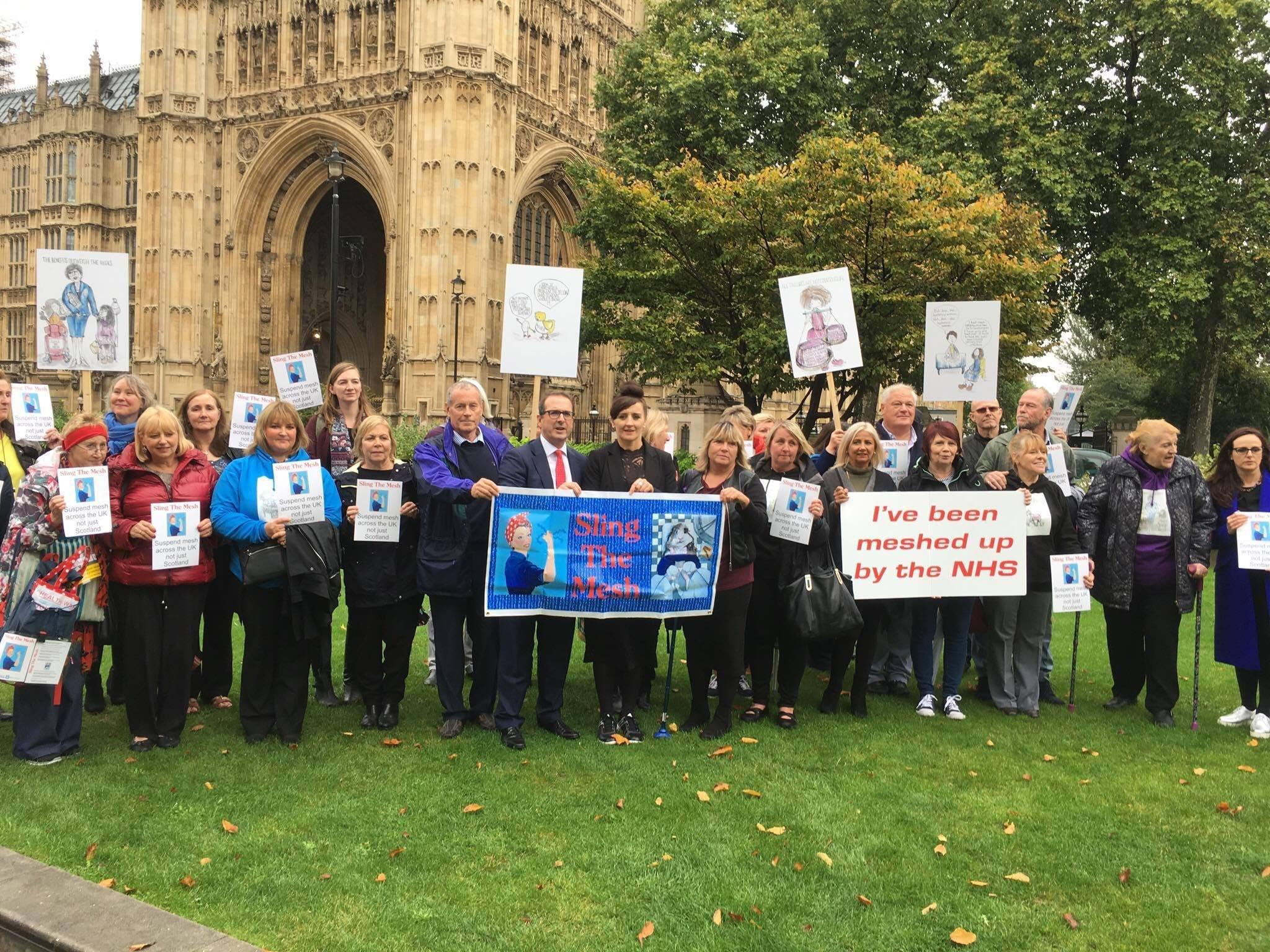Vaginal mesh should only be offered by NHS ‘as last resort’
Campaigners say new draft guidelines are welcome but do not go far enough

Your support helps us to tell the story
From reproductive rights to climate change to Big Tech, The Independent is on the ground when the story is developing. Whether it's investigating the financials of Elon Musk's pro-Trump PAC or producing our latest documentary, 'The A Word', which shines a light on the American women fighting for reproductive rights, we know how important it is to parse out the facts from the messaging.
At such a critical moment in US history, we need reporters on the ground. Your donation allows us to keep sending journalists to speak to both sides of the story.
The Independent is trusted by Americans across the entire political spectrum. And unlike many other quality news outlets, we choose not to lock Americans out of our reporting and analysis with paywalls. We believe quality journalism should be available to everyone, paid for by those who can afford it.
Your support makes all the difference.Vaginal mesh implants should not be offered to women until they have explored all other possible options, according to the UK's health watchdog.
The National Institute for Health and Care Excellence (Nice) has issued new draft guidelines suggesting a full range of non-surgical interventions should be provided.
It is the latest development in the vaginal mesh scandal, a treatment that has led to complaints that it has left thousands of women in agony.
Mesh implants have been used to treat pelvic organ prolapse and urinary incontinence after childbirth as well as to repair hernias in both men and women but hundreds have to be removed every year.
Over the past 10 months Nice has recommended the procedure should not be used for pelvic prolapse and their use for incontinence has been temporarily banned.
Now it has issued its latest draft guideline, which states that women should try a range of techniques before mesh is even considered, such as reducing the consumption of caffeine, losing weight and avoiding heavy lifting.
Other non-surgical options include medication, pelvic floor muscle training and behavioural therapies such as bladder training programmes.
Surgical mesh or tape should only be considered when non-surgical options have failed or are not possible, the institute added.
Nice also recommended that a national database should be set up to record all uses of surgical mesh in operations for stress urinary incontinence or pelvic organ prolapse.
Women should be fully informed about the risks and be given a follow-up appointment six months after surgery to check for any side effects.
The draft guideline also recommends how complications associated with surgical mesh or tape surgery should be managed.
Sir Andrew Dillon, chief executive of Nice, said: "It is important that every woman is supported to make decisions that are right for her, consents to a procedure, and fully understands the benefits and risks of the procedure being offered before consenting to it. Where surgical mesh/tape could be an option, there is almost always another intervention recommended in our guideline, which does not involve surgical mesh/tape.
"If a surgeon cannot provide a full range of choices to the patient, then she should be referred to one who can. Surgeons must also record any intervention using surgical mesh/tape in a national database."
Commenting on the draft guideline, Kath Sansom of the campaign group Sling The Mesh said: "These draft guidelines are to be welcomed but they do not go far enough. Our ideal scenario is to see pelvic mesh stopped. Full stop. The risks are too great. It is totally unacceptable that women come out of a 'simple little operation' with shattered lives.
"One in seven have lost their marriages because of mesh. One in seven have lost their sex life. Eight out of 10 suffer pain so great it affects their daily life. More than half suffer ongoing urinary infections. Unsurprisingly many are suicidal and six in 10 are on anti-depressants."
Nice's formal guidance is expected in April next year.
Press Association
Join our commenting forum
Join thought-provoking conversations, follow other Independent readers and see their replies
Comments